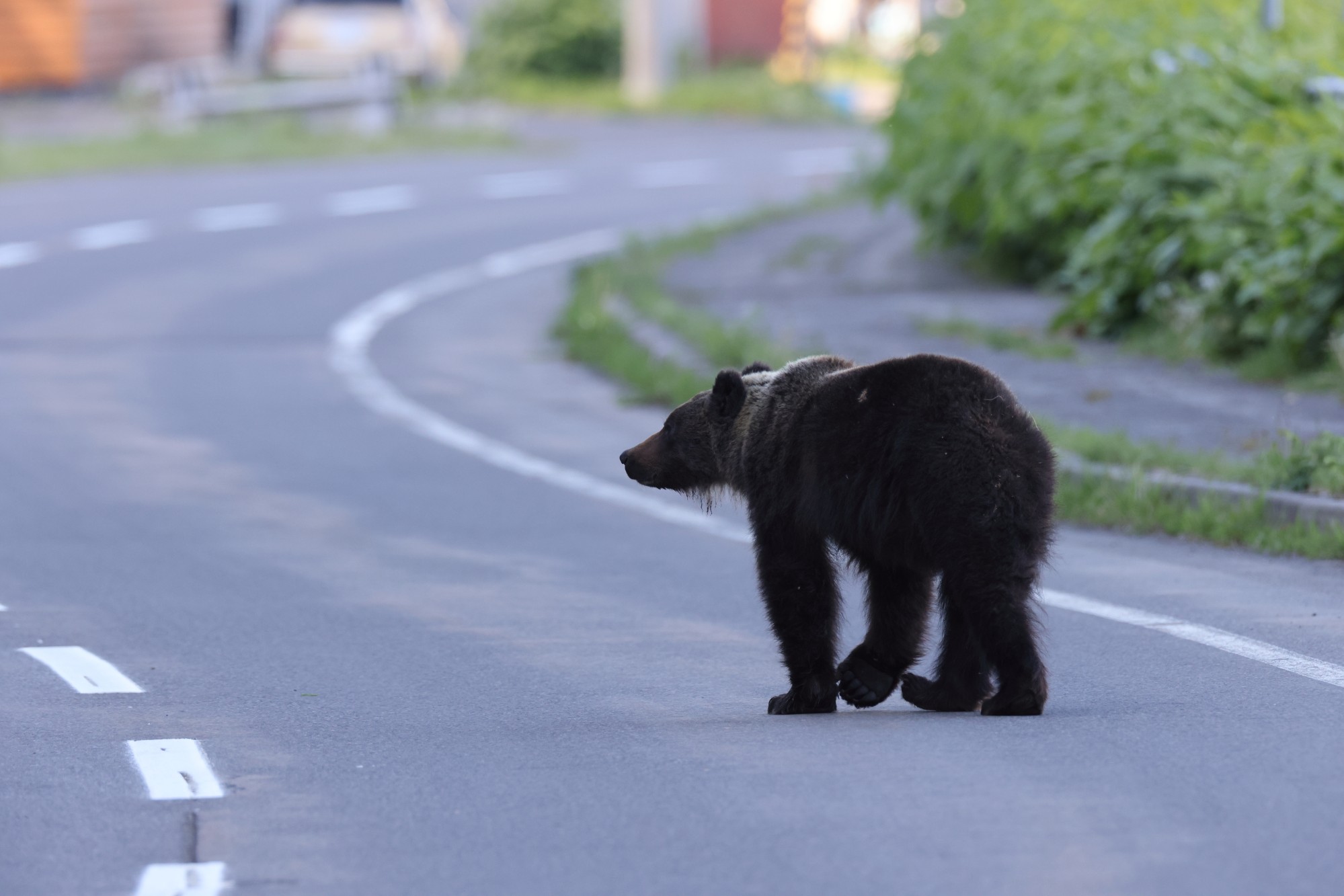Japan village told to ‘take precautions’ as rare bear sighting triggers memory of grisly 1915 attack
[ad_1]
The town employees said they saw the bear eating what appeared to be a deer, and on another occasion, burying a kill. There have also been numerous reports of bear tracks in the thick snow, including close to one house on the outskirts of Obira.
“Last year, we only had one report of a bear being seen close to the town,” said Yurie Tano, a spokesperson for the town, which has just 2,781 residents.
“We rarely see any bears close to the town, but they are in the hills nearby and we have told people to take precautions,” she told This Week in Asia.
There have been a lot more bear sightings across Hokkaido in the last few years, in part because the deer population has grown as there are far fewer hunters than in the past
Local officials have been going door-to-door in the community to warn residents of the potential danger, with people living in properties on the outskirts of the town and those in isolated valleys considered to be particularly at risk.
Tano confirmed that local hunters had set at least one trap for the bear, although Tano was not sure whether the hunters planned to shoot the bear or just trap it and release it in a more remote part of Hokkaido.
“I don’t think people are too nervous when they are in the town,” she said. “But it’s different in the hills. I think it is not so much of a worry if people are careful.”

It is not surprising the sightings have put local people on edge, given the area’s history.
The bear that terrorised the pioneers of the hamlet of Sankebetsu in 1915 was initially disturbed while stealing corn from an outhouse. When it returned a few days later, it was shot by a local farmer, wounding the creature. Locals believed that would be enough to deter the bear from approaching their settlements again, but the opposite occurred.
The bear broke into the home of a farmer and his family on December 9, killing a baby and the farmer’s wife as she fled through the snow. Reports at the time said the scene of the attack resembled a slaughterhouse. Evading armed patrols, the bear broke through the wooden walls of another farm the following day, killing five women and children.
Over the following days, the bear managed to elude more hunters and soldiers sent to the village while ransacking homes that had been abandoned by the local people. It was not until December 14 that soldiers were able to track the bear down and kill it. When measured, the bear was an impressive 2.7 metres long and weighed 340kg.
“There have been a lot more bear sightings across Hokkaido in the last few years, in part because the deer population has grown as there are far fewer hunters than in the past,” said Kevin Short, a naturalist and professor of cultural anthropology at the Tokyo University of Information Studies.
“While bears are meant to be hibernating at this time of the year, it does seem that the easy availability of prey has been bringing them out earlier,” he told This Week in Asia.
Bear attacks up in Japan as climate change pushes them out of natural habitats
Bear attacks up in Japan as climate change pushes them out of natural habitats
There have also been an increasing number of confrontations between bears and humans in Hokkaido. In May, police discovered the head of a fisherman on the banks of Lake Shumarinai a few hours after he had been dropped off by a guide. A large brown bear, spotted with fishing waders in its mouth, was later shot by hunters.
“Bears are also coming in closer to human settlements because the forests that were in the past managed by local communities and served as a buffer zone between the mountains and these towns are no longer being tended,” Short said. “That means the bears are able to get really very close to homes before they are spotted, and they are also less frightened of people than they were in the past.”
But Short does caution against an overreaction to a single bear being spotted on the outskirts of a town, even if it was a large one.
“This bear has not attacked anyone and it has not ventured into the centre of the town, so I don’t really see the problem,” he said. “A bear being seen in the hills is completely normal and natural and we should not panic when this happens.
“Yes, this happened close to Sankebetsu and that incident is famous, but we cannot overreact every time someone sees a bear,” he added.
[ad_2]
Source link

